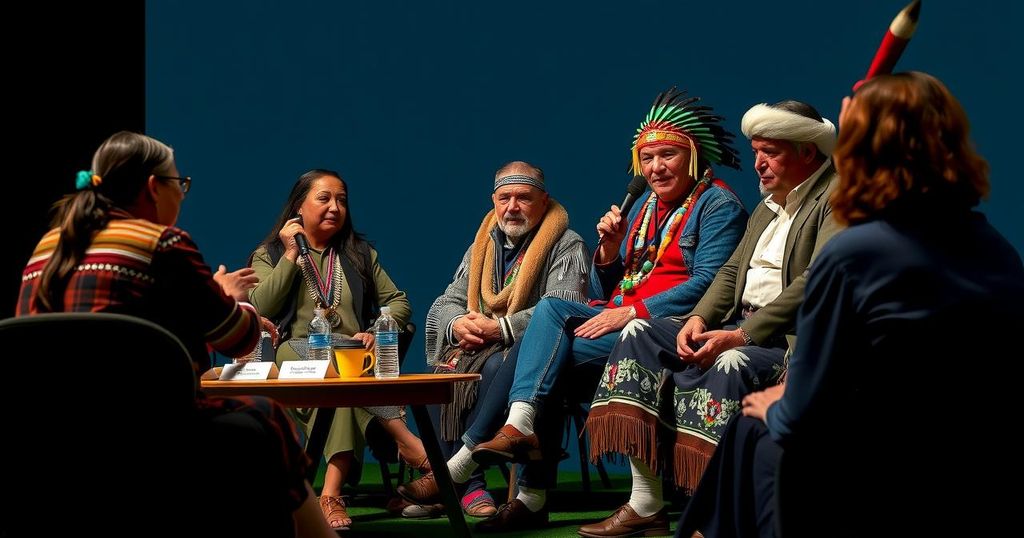At COP29 in Baku, Azerbaijan, Indigenous leaders from various communities shared their experiences of climate change, highlighting issues such as rising sea levels, resource contamination, and drought. Their stories called for recognition of Indigenous practices in combating climate change, emphasizing their vital role in environmental stewardship. The conference served as a significant platform for advocating the adaptation needs of these often-overlooked groups in global climate discussions.
At COP29, Indigenous individuals from various communities convened to articulate their concerns about climate change’s profound impact on their environments and health. During the summit in Baku, Azerbaijan, they shared personal stories highlighting the realities of severe weather events, resource depletion, and social challenges. Their narratives underlined the urgent need for dialogue and collaborative solutions in confronting climate-related crises. Participants emphasized their traditional practices that can contribute to sustainable environmental stewardship, showcasing their vital role in addressing climate change challenges worldwide. Notably, participants from diverse backgrounds, including Saina Ekaterina Savvinova of Yakutsk, Russia, and Flora Vano from Port Vila, Vanuatu, spoke on how climate change has altered their living conditions, revealing issues such as reduced snowfall, rising sea levels, and increasing contamination of water sources. They urged for recognition of Indigenous knowledge in climate strategies, asserting that ancestral wisdom holds valuable lessons for modern environmental management. The summit served as a platform for these voices, aiming to influence global climate policy and advocate for the rights and adaptation needs of Indigenous communities globally. As these communities bear an outsized share of climate impacts despite contributing the least to greenhouse gas emissions, their insights were deemed crucial in the discussions surrounding effective climate action.
Indigenous peoples worldwide are disproportionately affected by climate change, facing heightened challenges such as extreme weather events, habitat loss, and resource scarcity. Despite being significant stewards of the land, their voices often remain underrepresented in global climate discussions. The annual United Nations Climate Summit, COP29, offers a critical opportunity for these communities to highlight the intersection of climate change with their traditional lifestyles and environmental stewardship. Their historical connection to the land positions them uniquely to contribute to solutions aimed at mitigating and adapting to climate impacts, advocating for both their rights and sustainable practices.
The participation of Indigenous peoples at COP29 underscores the necessity for inclusive dialogue in climate action. Their testimonies reflect not only the hardships wrought by climate change but also a dedication to environmental guardianship that has persisted for millennia. Moving forward, integrating Indigenous knowledge and practices into global climate strategies may provide innovative pathways toward achieving sustainability and resilience in the face of ongoing environmental challenges.
Original Source: apnews.com







